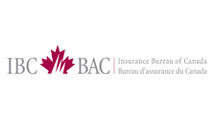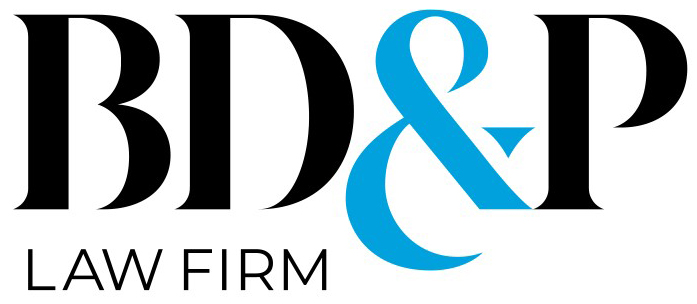
Arbitrating Intellectual Property Disputes
By Michael Erdle, C.Arb, C.Med, FCIArb
 Many commercial lawyers automatically carve intellectual property out of arbitration agreements. However, many contract disputes include some form of IP and can be arbitrated just as effectively as disputes over any other commercial terms. Further, the carve-out can lead to some unexpected results. Some recent cases highlight the risks and opportunities of IP arbitration.
Many commercial lawyers automatically carve intellectual property out of arbitration agreements. However, many contract disputes include some form of IP and can be arbitrated just as effectively as disputes over any other commercial terms. Further, the carve-out can lead to some unexpected results. Some recent cases highlight the risks and opportunities of IP arbitration.
When I was negotiating and drafting licensing agreements, I often found that clients – and lawyers on the other side – just assumed that intellectual property (IP) should be carved out of the dispute resolution clauses. I thought that was a mistake then, and my experience as an arbitrator has reinforced that opinion.
The first problem is that almost every commercial agreement these days involves some sort of IP. This may include confidential information, copyright works, trademarks, or patents. The scope of rights granted can range from simple licenses to use the IP to very complex development, distribution, supply and services agreements.
How can the IP rights be separated from all the other commercial terms? They cannot. The good news is that you do not have to do so.
The Supreme Court of Canada in 2003 clearly stated that there is no public policy reason why parties cannot agree to arbitrate IP claims. (Desputeaux v. Éditions Chouette (1987) inc., 2003 SCC 17)
Canadian courts including the Federal Court, which has specific jurisdiction over IP matters, are generally willing to defer to contractual arbitration agreements.
In March 2022, the Federal Court stayed copyright and trademark infringement claims relating to an online content streaming service in favour of arbitration in Bermuda. General Entertainment and Music Inc. v. Gold Line Telemanagement Inc., 2022 FC 418 (CanLII) involved a content acquisition and licensing agreement which contained the arbitration clause. Among the many issues in the dispute was which members of a complex web of companies (on both sides) were parties to that agreement, whether the agreement had been validly terminated, the scope of the arbitration clause and whether it survived termination, and whether the licensor’s IP rights were infringed by continued use of the licensed content.
Here are a few more examples of the kinds of IP disputes that can be arbitrated:
- Breach of copyright and breach of confidential information, including claims against a related party which was deemed to be a party to the arbitration clause.
(Xerox Canada Ltd. v. MPI Technologies Inc, 2006 CanLII 41006 (ON SC)) - Dispute over the validity of an assignment of copyright in a musical work. The court action in Ontario was stayed in favour of arbitration in the UK as required by the assignment agreement. (Folkes v. Greensleeves Publishing Ltd., 1997 CanLII 12373 (ON SC))
- Misrepresentation claims under a patent license. The licensor was alleged to have made representations about inventorship and ownership.
(University of Toronto v. Harbinson, 2005 CanLII 47089 (ON SC)) - Disputes between faculty members and an educational institution over ownership of copyright and related rights. The disputes were subject to a grievance arbitration process in a collective agreement.
(UBC v. Faculty Association, 2006 CanLII 92913 (BC LRB); Wiebe v. Sask Institute of Applied Science and Technology, 2007 SKQB 60 (CanLII))
But – there is always a “but” – there are some IP disputes for which arbitration can lead to more problems.
In Avalanche Effects Inc. v. Visual Frameworks Inc., 2007 CanLII 290 (ON SC), the successful party in an arbitration over the ownership of software sought to enforce an injunction against the unsuccessful party, as well as another corporation and several individuals who were not parties to the original arbitration. The unsuccessful party was in receivership and the individuals were no longer associated with it. The court refused to add non-parties to the enforcement action but noted that the claimant could bring a separate infringement action. This is cold comfort to the IP owner who had prevailed in the arbitration.
In Clayworth v. Octaform Systems Inc., (2020 BCCA 117), a company had invoked a stepped dispute resolution clause – negotiation, mediation, then arbitration – under an employment agreement in a trade secret dispute with a former employee. When the company also started a civil action seeking an injunction and damages for breach of trade secrets, the employee sought to stay the court action, other than the injunction claims. The employment agreement expressly excluded any claims that “involve the Company seeking a court injunction or other relief relating to protection or enforcement of the Company’s intellectual property, confidential information or restrictive covenants.” The chambers judge decided that the exclusion was broad enough to capture damages related to the trade secrets and stayed the arbitration. The Court of Appeal said that was wrong and that some of the claims arguably should go to arbitration. The injunction claims could proceed in the court action, but all the other claims should be stayed “until the arbitrator does the work that the parties agreed should be arbitrated.” The problem with this result, and with the original drafting decision to exclude IP claims from the employment agreement, is that it forces the parties to continue parallel legal proceedings over the same issues.
A contrary view is set out in Diversified Metal v. Trivett, 2005 PEISCTD 38 (CanLII). There, the company sought an injunction to restrain disclosure of confidential information by a former employee. The employment agreement included a clause submitting to arbitration “any dispute arising out of or relating to this Agreement.” The court, wrongly, I think, expressly found that an arbitrator could not grant an injunction of the nature sought and, on that basis, assumed jurisdiction. If, instead of going to court, the parties had gone to arbitration over the same issues, the arbitrator could have granted the same injunction, on an emergency basis, if necessary, and the court likely would have enforced it.
The take-away from these and other recent cases is that it is often difficult or impossible to disentangle the IP issues from the other business issues in a contract dispute. When an agreement relates to any kind of IP, the parties should give serious thought to whether they want part or none of any dispute to go to arbitration or to court, with all the benefits and limitations that each path presents.
In many situations, a relatively brief and less costly arbitration will be preferable to facing the prospect of many years of litigation.
If they opt for arbitration, IP owners should ensure that the arbitrator has the power to grant interim relief to stop any immediate harm. Both parties should also ensure that any award granted can be enforced as broadly as needed. If neither of those goals can be met, they may have no alternative except litigation.
Michael Erdle, C.Arb, C.Med, FCIArb is an independent mediator and arbitrator, whose work focuses on commercial disputes involving technology and intellectual property. He has mediated and arbitrated domestic and international disputes involving patents, trade secrets, trademarks and copyright.












